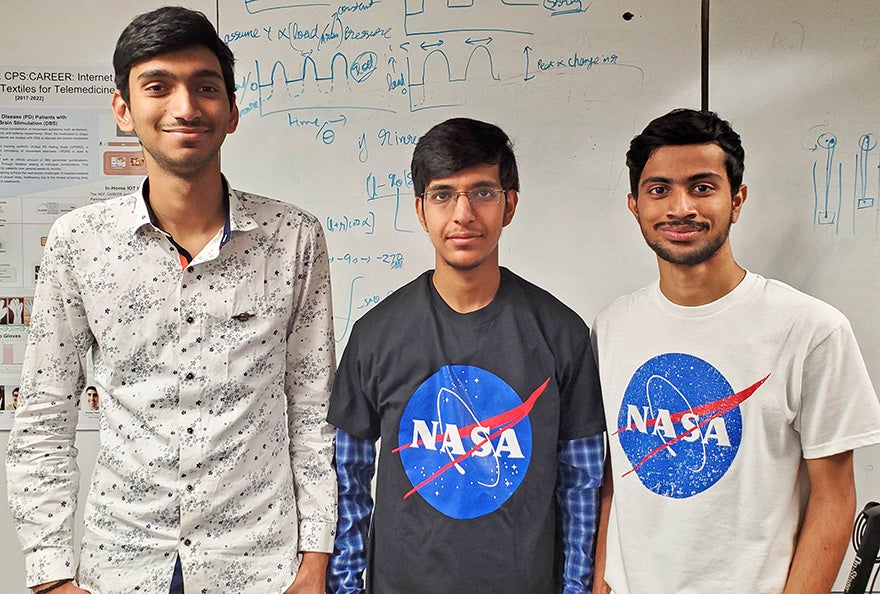Three interns in the Wearable Biosensing Laboratory at the University of Rhode Island’s College of Engineering won first place in the Astropreneurship, Space Medicine and the Dataverse Hackathon, held at Harvard University from June 8-9.
The three interns, Himanshu Mishra, Ayush Arora and Adityaraj Verule, are visiting URI from the Indian Institute of Technology in Delhi, where they are studying textile technology as undergraduates. They are interning at URI from May 17 to July 29.
“This was our first time competing in a hackathon,” said Verule. “Perhaps we underestimated ourselves, but we thought we had no chance to win.”
Hackathon participants were challenged to develop solutions to biomedical, social, policy, and data-driven challenges of people pioneering in space.
The team’s winning pitch at the hackathon was “SpaceBling: A Radiation Deflecting Spacesuit.” They designed a spacesuit to not only protect the user from solar radiation, as suits currently do, but also cosmic radiation. This would be accomplished by using magnetic fields as shields.
“Winning this hackathon shows how eager and curious these interns are to innovate something new,” said Kunal Mankodiya, URI assistant professor in the College of Engineering and director of the Wearable Biosensing Lab. “Before this hackathon, the interns went through an intensive training on innovative projects in our lab. I am fortunate to work with these young students.”
The three researchers defeated 11 other teams. Their team, like some of the others, also included high school students and industry professionals. Two high school sophomores from the Cambridge area and a professional engineer worked with the visiting scholars.
The high schoolers developed a website for the public to purchase a spacesuit, which could be custom ordered by size and color. The engineer designed a 3D model of the suit. Mishra, Arora and Verule conceptualized the space suit design based on published research papers they found online.
“Our work with sensors, smart fabrics and textiles in the Wearable Biosensing Lab prepared us for the hackathon,” said Arora. “This experience led to our idea of making a spacesuit using smart fabrics. We also work on projects as a team in the lab and pitch our ideas, which helped us work efficiently and present our spacesuit project at Harvard.”
The hackathon was organized by the Quantly Group, a Harvard start-up operated by Harvard alumni and graduate students, devoted to making quantitative analysis more accessible. The Quantly Group is involved with SpaceApps, a NASA incubator innovation program.

